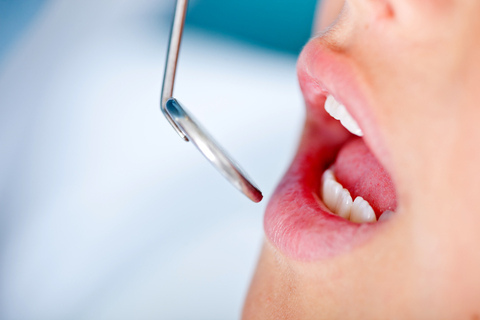January 27th, 2021

Parents, and even older children, can become concerned about tooth development. Wondering when teeth should erupt, and being concerned when the teeth do not appear on schedule, is common. First, you need to remember that each individual is different. Guidelines are just guidelines, but David Jones and our team at Small Smiles LLC thought we would pass on this information to help you.
Primary teeth
Children normally have 20 primary or baby teeth. The first two to appear are usually the lower central incisors between six to ten months of age. These fall out between five and seven years of age.
- Two upper central incisors – eight to 12 months
- Two upper lateral incisors – nine to 13 months
- Two upper cuspids or canines – 16 to 22 months
- Two upper first molars – 13 to 19 months
- Two upper second molars – 25 to 33 months
- Two lower lateral incisors – ten to 16 months
- Two lower cuspids or canines – 17 to 23 months
- Two lower first molars – 14 to 18 months
- Two lower second molars – 13 to 31 months
As you can see, all the primary teeth normally have erupted before three years of age, but the timeline can vary by four to six months. Except for the lower central incisors and second molars, upper teeth tend to appear before lower teeth.
Permanent or adult teeth
Adults normally have 32 permanent teeth. However, four of these are wisdom teeth or third molars, which are often removed.
- Two upper central incisors – seven to eight years
- Two upper lateral incisors – eight to nine years
- Two upper cuspids or canines – 11 to 12 years
- Two upper first premolars or bicuspids – ten to 11 years
- Two upper second premolars or bicuspids – ten to 12 years
- Two upper first molars – six to seven years
- Two upper second molars – 12 to 13 years
- Two upper third molars or wisdom teeth – 17 to 21 years
- Two lower central incisors – six to seven years
- Two lower lateral incisors – seven to eight years
- Two lower cuspids or canines – nine to ten years
- Two lower first premolars or bicuspids – ten to 12 years
- Two lower second premolars or bicuspids – 11 to 12 years
- Two lower first molars – six to seven years
- Two lower second molars – 11 to 13 years
- Two lower third molars or wisdom teeth – 17 to 21 years
Please discuss any of your dental concerns during your visit with David Jones. If there is a problem with tooth development, the earlier we address it, the better the outcome. We specialize in pediatric dentistry and look forward to helping you and your child with all your dental needs. To learn more about tooth eruption, or to schedule an appointment with David Jones, please give us a call at our convenient Naperville, Illinois office!
January 20th, 2021

Our team at Small Smiles LLC hears this question a lot. According to our friends at the American Academy of Pediatric Dentistry (AAPD), pediatric dentistry is “an age-defined specialty that provides both primary and comprehensive preventive and therapeutic oral healthcare for infants and children through adolescence, including those with special healthcare needs.”
Pediatric dentists, such as David Jones, are dedicated to the oral health of our young patients from infancy through their teen years. Our team at Small Smiles LLC has the experience and qualifications to care for your child’s teeth, gums, and mouth throughout his or her various stages of childhood.
Pediatric dentists complete at least four years of dental school, including an additional two additional years of residency training in dentistry for infants, children, teens, and children with special needs.
At Small Smiles LLC, we know children are not born with a fear of the dentist, but they can fear the unknown. And that is why David Jones and our team know how to examine and treat children in ways that make them relaxed and comfortable.
To learn more about pediatric dentistry, or to schedule your child's next visit at our Naperville, Illinois office, please give us a call today!
January 13th, 2021

The primary teeth are the initial teeth that erupt from a child’s gums in the first few years of childhood. There are a total of 20 primary teeth, most of which will have appeared no later than age three. Because they are only temporary, some parents believe they are less important than the permanent teeth that will emerge around age five or six. However, primary teeth hold a special significance and are important for a child’s long-term oral health.
Function and importance of baby teeth
Baby teeth have several basic functions. Decay can interfere with these functions, and potentially lead to life-long complications. For example, severe tooth decay that causes tooth loss during childhood, perhaps due to sleeping with a bottle at night, can obstruct a child’s speech development. It can also hinder his or her ability to sufficiently chew food.
The primary teeth also serve as place-holders for the permanent teeth. When a primary tooth falls out or must be removed before its time, surrounding teeth may shift into the space the tooth once held. This can cause orthodontic complications once the permanent teeth begin to erupt, which can lead to serious tooth alignment problems and call for extensive orthodontic treatment.
Caring for baby teeth
David Jones and our team at Small Smiles LLC will tell you it is never too early to begin caring for your child’s teeth. Baby teeth require the same care and attention that permanent teeth do. The American Dental Association recommends that children see a dentist as soon as the teeth begin to erupt from the gums. Early childhood dental visits usually include examinations, cleanings, fluoride treatments, and hygiene education for parents. It is also important to adopt an oral care routine at home that includes daily brushing, flossing, and dietary modifications that support a lifetime of good oral health.
To learn more about baby teeh, or to schedule an appointment with David Jones for your little one, please give us a call at our convenient Naperville, Illinois office!
January 6th, 2021

Kids are constantly active and constantly growing. No wonder they’re constantly hungry! When it’s time for a snack, here are some tips to make between meal treats timely, tasty, and tooth-friendly.
Keep snacks to a minimum
Every time we eat, we’re also providing food for the bacteria in our mouths. Bacteria use sugars to produce acids. These acids weaken our enamel and can lead to cavities. Luckily, we have a natural way of protecting our teeth. Saliva washes away food particles and bacteria, and even provides substances that strengthen our teeth in the hours between meals.
When we eat throughout the day, there is no chance for this recovery period to take place. Small children aren’t usually able to get through the day without a few snack periods, which is perfectly normal. Just try to make sure that snacking doesn’t become all-day grazing!
Avoid foods that contain sugar and carbohydrates at snack time
We know that sugar leads to an increased chance of cavities because bacteria convert this sugar into acids that damage our enamel. But carbohydrates should also be in the no-snack zone. Why? Because carbohydrates break down into sugar very quickly. So while you wouldn’t offer your child a daily mid-afternoon snack of sodas and chocolate bars, those muffins, doughnuts, chips, and bagels should be on the “special treat” list as well.
Dental-healthy snacks
Luckily, we are left with many healthy and convenient choices when your child needs a nibble.
- Crunchy, crisp fresh fruits and vegetables provide vitamins as well as a gentle scrubbing action to help clean teeth. They are also rich in water, which helps us produce the saliva that naturally washes away food particles and bacteria.
- Low-fat yogurts and cheeses provide essential calcium for strong teeth and the vitamin D that helps us absorb calcium.
- Whole grain breads, cereals, and crackers are healthier than products made only with white flour because they retain valuable vitamins and minerals that have been removed from refined grains.
- Lean meats, peas, legumes, and eggs provide protein that helps build connective tissue and maintain tooth structure.
- Water helps stimulate saliva production and provides cavity-fighting fluoride. Win/win!
You are constantly looking for ways to make your children’s lives better. Mix and match any of these foods for a snack that’s not only good for their teeth, but rich in the proteins, vitamins, and minerals needed to keep them active and growing throughout their school years. If you have questions about your child’s dietary needs, feel free to ask David Jones at our Naperville, Illinois office.











 Website Powered by Sesame 24-7™
Website Powered by Sesame 24-7™